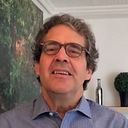Trust #13: Why journalists investigate
If you’re looking for information you can trust, I recommend you look for media that do investigative journalism. Some examples are below, but first, a definition.
What is it? People in the news business sometimes say that those who call themselves “investigative journalists” are just pretentious, putting on airs. “All journalists are investigative journalists,” they say. “We all investigate.”
I don’t agree. The day-to-day journalism we see doesn’t usually have all the elements that the Global Investigative Journalism Network includes in its definition of investigative journalism. Those are:
- “Systematic, in-depth and original research and reporting”. Not something announced in a press release or press conference.
- It often involves “the unearthing of secrets.” Corrupt public figures and organizations try to hide their misdeeds, mistakes, or incompetence.
- It involves “heavy use of public records and data.” Investigative journalists “follow the money,” to quote a phrase made famous by the Watergate scandal. They dig through reports of public agencies to see who gets lucrative government contracts, how public money is spent, whether it was effective and efficient.
- Its focus is on “social justice and accountability.” Do the powers that be treat people fairly? Are they enriching themselves with taxpayer money?
Financial pain. I’ve seen how aggressive reporting of potential corruption has led governments in Europe and Latin America to punish critical media by withdrawing advertising and urging their allies to do the same. In many countries the government is the biggest media buyer. Media that promote the government line are rewarded with rich contracts.
Legal pain. Defending a libel lawsuit by a deep-pocketed corporation or government can exhaust the resources of a news organization. Some publishers decide to avoid sensitive stories or kill investigations rather than risk legal action — self-censorship.
Character assassination, reputational attacks. I’ve seen active campaigns against individual journalists in Mexico, Spain, Hungary, Poland, and Malaysia, among other countries. The Global Reporting Centre surveyed 647 journalists in 87 countries; more than a third said they are subjected to such tactics on a weekly basis.
Threats, intimidation, and violence. More than half of the 3,000+ digital media from 68 countries in SembraMedia’s Project Oasis Report have been subjected to online harassment, threats, and physical violence because of their journalism.
So, it takes courage to do public service journalism in most of the world.
The Organized Crime and Corruption Reporting Project, OCCRP. The goal of this innovative nonprofit, based in Amsterdam, is “a more informed world where lives, livelihoods, and democracies are not threatened by crime and corruption.” They have a team of more than 200 on six continents, including journalists, technologists, security specialists, data engineers, and administrators.
They take on the dangerous work of exposing cross-border criminal networks. I’ve followed their work since I met their co-founder, Paul Radu, about 15 years ago when he was based in Romania and focused on corruption in Central and Eastern Europe. Since then, the team has grown and had impact around the world.
“We need to disrupt the current transcontinental organized crime alliances that are attacking democracy in a very sustained manner.” — Paul Radu, Co-founder and Head of Innovation, OCCRP
+++
The International Consortium of Investigative Journalists (ICIJ) is a global network of 290 investigative journalists in more than 100 countries. It’s most famous for producing the Panama Papers and Paradise Papers, both led by Marina Walker. She showed us we could have greater impact by patiently collaborating across borders to reveal a complex web of institutional corruption.
ICIJ vets applicants before admitting them as members. Here is a list of all of them, by country. They continue to produce groundbreaking scoops like The Caspian Cabals, which reveals “How Western oil companies bet on Kazakhstan, turned a blind eye to corruption risks — and ended up at the mercy of Vladimir Putin.”
+++
The International Fact-Checking Network, housed at the Poynter Institute, “advocates for information integrity in the global fight against misinformation.” It “supports fact-checkers through networking, capacity building, and collaboration.”
Their website lists 39 journalists, authors, and influencers from around the world who are “MediaWise ambassadors.” Their mission is teaching people “how to distinguish fact from fiction in the media.” Among them are Ana Pastor of Newtral in Spain, Christiane Ampour of CNN, José Díaz-Balart of Noticias Telemundo , YouTube creator Mark Watson (Soldier Knows Best), and Pauline Paccard of France 24.
+++
NewsGuard is a for-profit publisher whose tagline is “The Internet Trust Tool.” It gives trust scores to 35,000 internet information sources globally, including all of the biggest and most influential ones. I’ve been following them for several years and find their free service useful and informative.
Its founders and co-editors, Steven Brill and Gordon Crovitz, have a long history of producing high-impact investigative journalism. My personal favorite service is an email update called Reality Check that debunks current hoaxes and conspiracy theories about supposed election fraud, hurricane cleanup, and vaccination safety.
+++
I’ve already mentioned the Global Investigative Journalism Network, which has 251 member organizations in 95 countries. On this interactive map, you can find an individual country and a list of their member organizations. Its co-founder, David Kaplan, taught me the importance of showing potential donors a “return on investment” of investigative journalism, by tracking public money recovered from corruption prosecutions. In other words, it’s costly but worth it, so donate.
Membership is by application and is approved by the board of directors. Most are non-profits, educational institutions, or NGOs. Those ineligible to join include most for-profit media, individual journalists, and government agencies. I’m impressed with the creative approaches used by members in their recent projects.
Coming Dec. 19: Investigative Reporters and Editors (IRE) and my journey in investigative journalism.
Originally published at https://jamesbreiner.substack.com.
